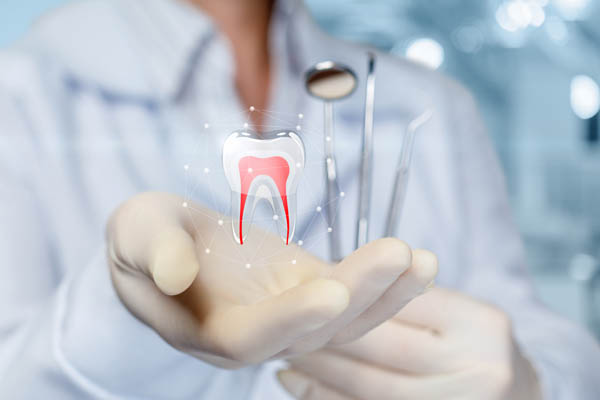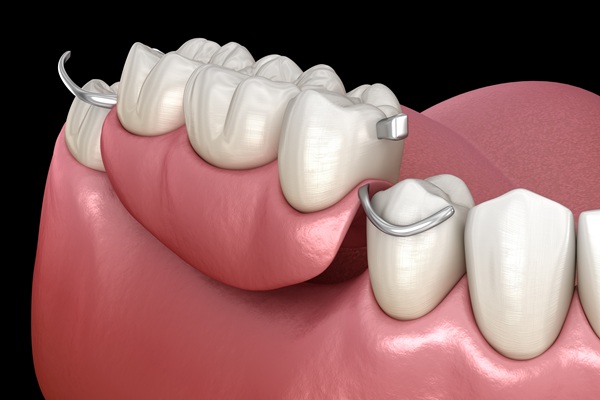How Long Does Root Canal Treatment Last?

Root canal treatment is used to save a tooth when its pulp chamber has been damaged, as the blood vessels, connective tissues, and nerves in the pulp chamber are exposed to harmful irritants like bacteria and the acids that they produce. Root canal treatment involves the dentist removing the soft tissues in the pulp to prevent infection and stop the pain caused by the damage. These soft tissues are only necessary when a tooth is still growing. Once it is fully developed, the tooth can get all the nutrients that it needs from the surrounding blood vessels.
The benefits of getting root canal therapy can last a lifetime, but some patients might need additional treatments in the future. Factors like the location of the tooth and the patient’s age often determine how long the benefits of a root canal last.
Determining how long root canal treatment lasts
According to studies reported by WebMD, over 90% of root canals are successful, meaning the patient does not need any additional treatments. About 86% of root canals last over 10 years. Let us take a look at a few of the factors that can impact the success rate of root canal treatments.
The timing
Root canal treatments that are performed when needed typically last longer than those performed after the issue has been allowed to fester. The longer that a person waits before getting root canal therapy for a tooth with a compromised pulp chamber, the higher the risk of complications. Wait long enough, and root canal therapy might no longer be an option. For example, dentists often recommend extractions over root canals when there is a significant risk of an infection spreading into the jaw.
The quality of the restoration
Dentists often recommend restorations like composite bonding or crowns for teeth that have been repaired with root canal therapy. The type of restoration used also affects how long the treatment lasts. Composite bonding is the more affordable way to rebuild a tooth after root canal therapy, but it does not offer as much protection as a crown. Teeth covered up with crowns after a root canal typically have fewer complications. How soon the restoration is placed on the tooth also affects the longevity of the treatment.
The tooth’s location
Root canals performed on teeth located at the front of the mouth are typically less complicated than treating teeth in the back of the mouth. These teeth are also subjected to fewer forces and bite pressures after the procedure because they are primarily used for cutting and biting.
Molars at the back of the mouth are the most challenging teeth to restore with root canal therapy because they have multiple root canals and deal with considerably greater forces after the treatment. Covering these teeth with crowns is a must.
Root canals are a long-term solution
Root canal therapy can be a long-term solution for infected or damaged teeth and can last the rest of your life. Call or stop by our Plano clinic to set up an appointment with our dentist.
Request an appointment here: https://cissdental.com or call CISS Dental & Orthodontics at (469) 656-5002 for an appointment in our Plano office.
Check out what others are saying about our dental services on Yelp: Root Canal Treatment in Plano, TX.
Recent Posts
Root canal treatment, also known as endodontic therapy, isn’t something most people think about daily, but it’s one of the most common treatments available. If you experience pain in your teeth and are considering treatment, then you may have heard of endodontic therapy, which can save your teeth and make sure you have good oral…
A preventative dentist focuses on maintaining a patient’s oral health and preventing problems, such as sensitive teeth, from becoming more serious issues, like gum disease. This typically involves routine dental checkups, cleanings, and oral health screenings. By focusing on prevention, patients have a better chance of avoiding the need for more extensive and costly treatments…
Preventive dentistry involves using the right products. This includes selecting the right toothpaste. There is a type of toothpaste for every person. If you want to enhance your preventive dentistry brushing strategy, here are some tips on choosing the right toothpaste.The attending dentist will be the judge of the most suitable toothpaste. The dentist knows…
Emergency dentists treat a range of oral health concerns, including toothaches. A minor toothache may not be an emergency, but a severe toothache that lingers for an extended period of time or suddenly worsens likely requires immediate dental care to prevent any additional oral health concerns and ensure ideal long-term oral health. This review highlights how…


